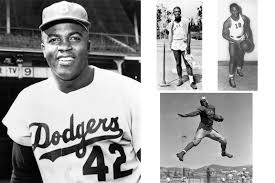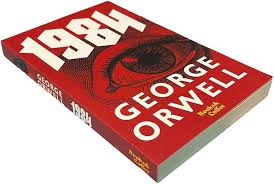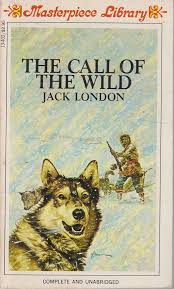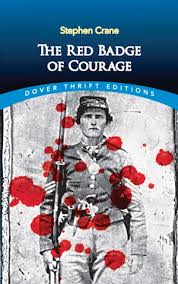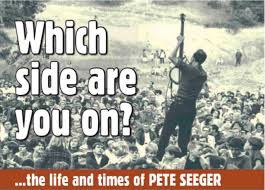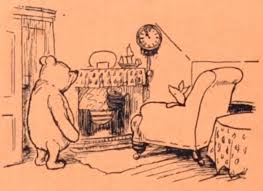In a more patient age, discussions—rather than polemics—about what books students should be encouraged to read were still a thing. I’m not sure how these conversations turned into narcissistic death matches involving power hungry small-minded, big-agenda bullies. But here we are. If you don’t want your children to read about Jesse Owens, Jackie Robinson, Rosa Parks, or Oscar Wilde, bully for you. Who am I to say that Number 42 should have a place in the fabric of your home. That’s why they make 28 flavors as my grandmother used to say and you are more than welcome to inflict the vanilla cone on your children year in and year out. But the impeccable courage of that Georgia native in the uniform of the United States Army and the Brooklyn Dodgers will always have a place in the minds of my kids. And no, Jackie Robinson’s accomplishments—track star at UCLA, being court martialed for refusing to move to the back of a segregated bus in the army—don’t make my kids feel bad. To the contrary, Robinson remains a hero’s hero. No New York Yankee will ever wear Babe Ruth’s number 3; no Atlanta Brave will ever wear Hank Aaron’s number 44; no Major League Baseball Player on any team anywhere from now until the end of time will ever wear Jackie Robinson’s number 42.
As a young faculty member, I was pleased to be part of a mindful discussion: the English faculty chatted about what the following titles—the ninth-grade curriculum–have in common. Shakespeare’s Julius Ceasar; Stephen Crane’s The Red Badge of Courage, George Orwell’s 1984; William Golding’s Lord of the Flies; and Agatha Christie’s And Then There Were None. Because this question about overlapping themes is more difficult than what do Winnie the Pooh and Joan of Arc have in common, I’ll leave the answer for a subsequent paragraph and instead—speaking of books that should not be banned–mention my older daughter’s first literary insight.
She might have been nine years old. We were camping on Cayo Costa, a barrier island off the West Coast of Florida. Accessible only by boat, the spit of land below Sanibel is primitive, no electricity, no mini mart, no significant structures. In short, it’s perfect. There’s nothing to do except collect shells, make fires, and read books out loud. I had chosen Call of the Wild for this trip because, although the Gulf of Mexico is over a hundred degrees warmer than the Yukon, the camping melodies seem to overlap. You remember the Jack London. Buck the magnificent dog, bonding with John Thorton, fighting with Spitz, ultimately joining the wolves. Buck survives even though most of the humans he meets do not. At the end of the last chapter, Buck returns to his primitive roots. As the fire died down just before the last s’more, my daughter remarked, “great book, dad. Everyone you care about dies.”
Which is the answer to what all those great reads have in common. Julius Caesar—betrayal, death, war; Red Badge of Courage—Civil War, pain, misery, death; 1984—torture, more torture, intense torture, totalitarianism, horrific torture; Lord of the Flies—meanness, inhumanity, violence, politics; And Then There Were None—deceit, murder, death. There’s not much selflessness, kindness, or beauty in any of those volumes. So, the English faculty had a nuanced conversation about why our 14-year-olds should only be assigned the saddest of sad tomes.
We decided that kids could learn vocabulary, plot, tone, style, character from books without quite so much death, violence, torture, and misery. Yes, 1984 is high on my list of books everyone should know about, but maybe it should be part of the curriculum for seniors rather than on the list of recommended books for freshmen. Ages and stages. Reasonable people can disagree about how old kids should be before being exposed to mature themes. But no English teacher would suggest that no one should read Orwell ever.
Because O’Brien, Winston’s antagonist in 1984, is the one who enforces that the population of the dystopian, desolate country should not have access to any ideas other than those enforced by the ironically named “Ministry of Truth.”
So with your beloved children, consider Pete Seeger’s query, “Which Side Are You On?” You can stand with O’Brien and try to restrict what other people’s children should be allowed to read. Or you can invite Jackie Robinson into your home and your children’s imaginations. You can side with the folks who burned books by Albert Einstein and Thomas Mann in 1933 or you can inspire your children not to limit their understanding. You can insist of limiting dissenting voices and ideas or you can acknowledge that not everybody thinks like you.
Speaking of books that show up on the let’s-ban-these-books-because-I-want-my-children-to-have-my-same-limited-imagination, a cleverer commentator than I pointed out that Fahrenheit 451, The Handmaiden’s Tale, and Animal Farm should be read as warnings, not instruction manuals.
Oh, and lastly, what do Winnie the Pooh and Joan of Arc have in common? Same middle name. My children, who have read pretty much everything and seem no worse for wear, are in favor of a broad base of reading and learning. That said, if anything needs to be banned, they would argue that outlawing Dad Jokes would be a good place to start.
